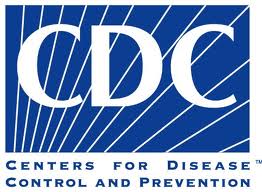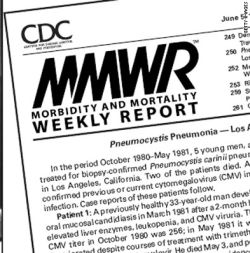Thirty years ago, the US health authority CDC reported on five young men suffering from a strange disease. It was the beginning of the AIDS era
On 5 June 1981, 30 years ago yesterday, the American health authority published "Centres for Disease Control and Prevention" (CDC) issued a brief report: Five gay men under 30 had contracted pneumonia in Los Angeles in the past eight months, and two of them died. The remarkable thing is that all the infections were associated with a specific fungal infection that a healthy human immune system normally fights off. But the immune system of the five men was not healthy, it was in a disastrous state.
It was the first public mention of a disease that was first called GRID (Gay-related Immune Deficiency) and from November 1982 AIDS.
Two weeks later, doctors from numerous major western cities such as New York, Amsterdam and London had contacted the CDC with very similar cases and could do little for their patients except watch them die.
A lot has happened since then. Within two years, a retrovirus was identified as the cause of AIDS: HIV.
In the last 30 years, around 30 million people have died from AIDS, and around 34 million are living with the virus worldwide today.
In the USA, Europe and other affluent countries, HIV infection has become a chronic disease in the vast majority of cases thanks to the medication that is now available. AIDS is generally preventable if the infection is recognised in time. However, in poorer countries, especially in Africa and Asia, HIV continues to cause devastating damage. Around 9 million people worldwide urgently need treatment, but do not receive it!
After 30 years, Deutsche AIDS-Hilfe (DAH) takes positive stock of its commitment to combating the HIV epidemic, but emphatically calls for prevention and effective medication to finally be made available to all people who are threatened or affected by HIV.
DAH board member Winfried Holz comments: "The successes of the last 30 years should not be withheld from anyone. There are still major gaps in the financing of international measures against HIV. Rich countries like Germany have a duty here. In addition, ideological blinkers prevent effective prevention in many countries. The work of the AIDS service organisations in Germany and their partners shows lasting success. But there is still a lot to do here in Germany too."
(pasch)
Current report on HIV/Aids worldwide on aidshilfe.de
Dossier "30 years of HIV" on aidshilfe.de











